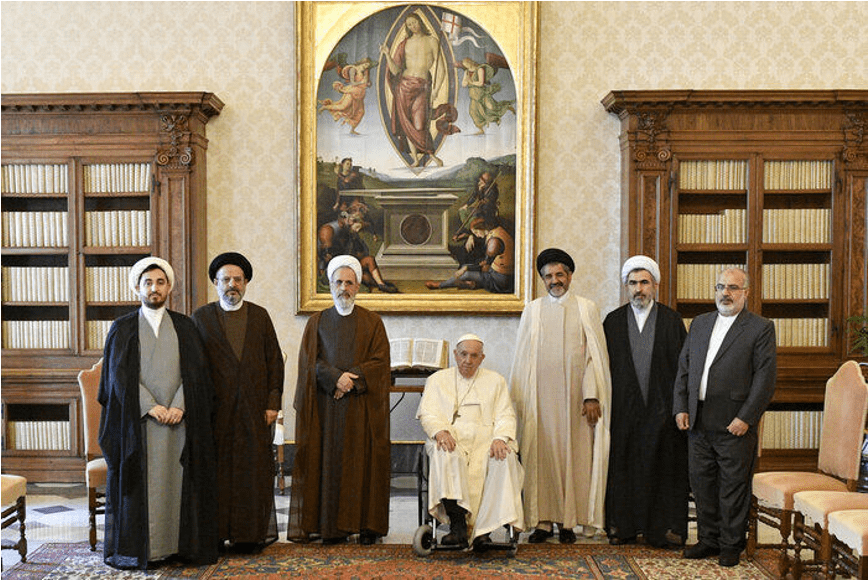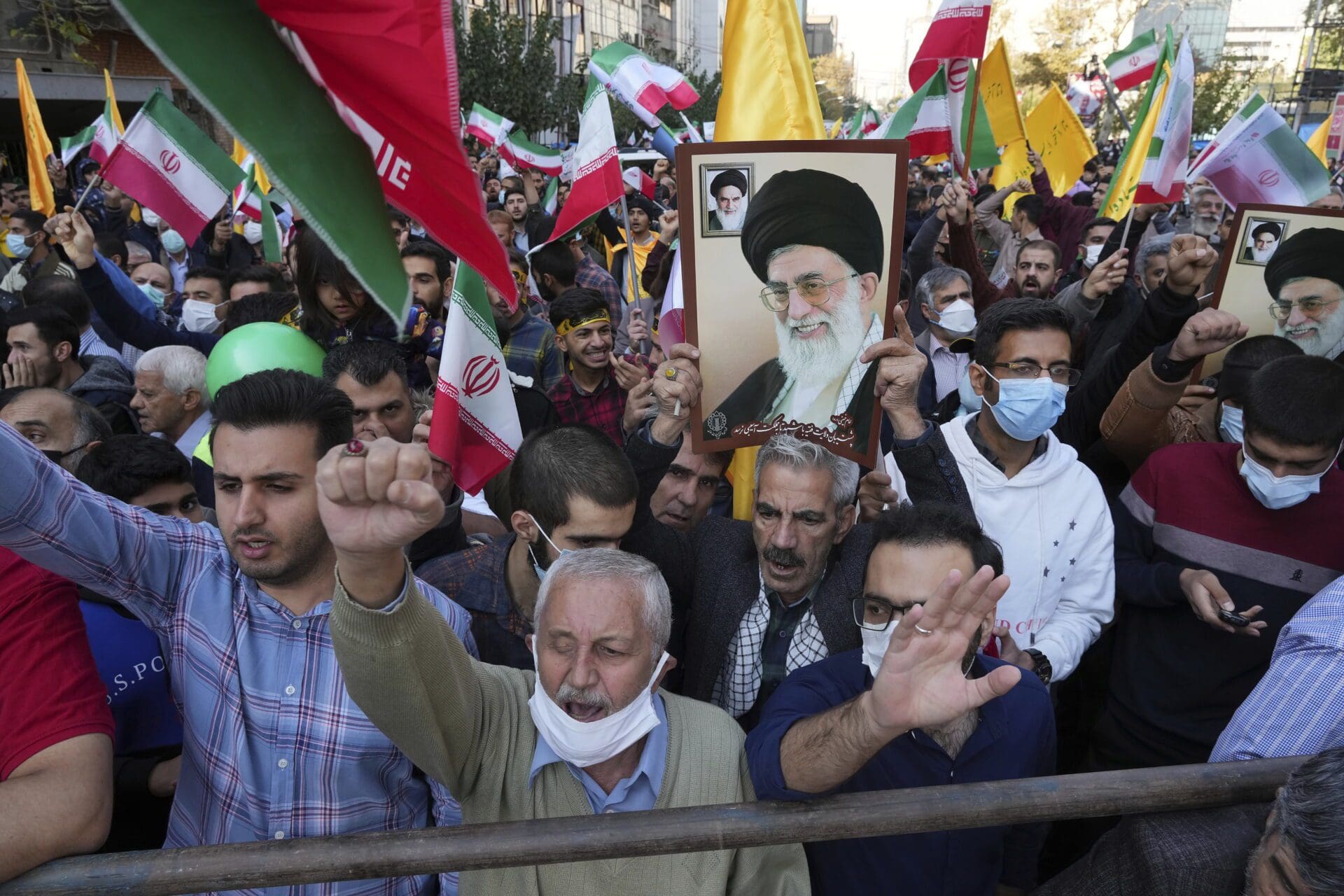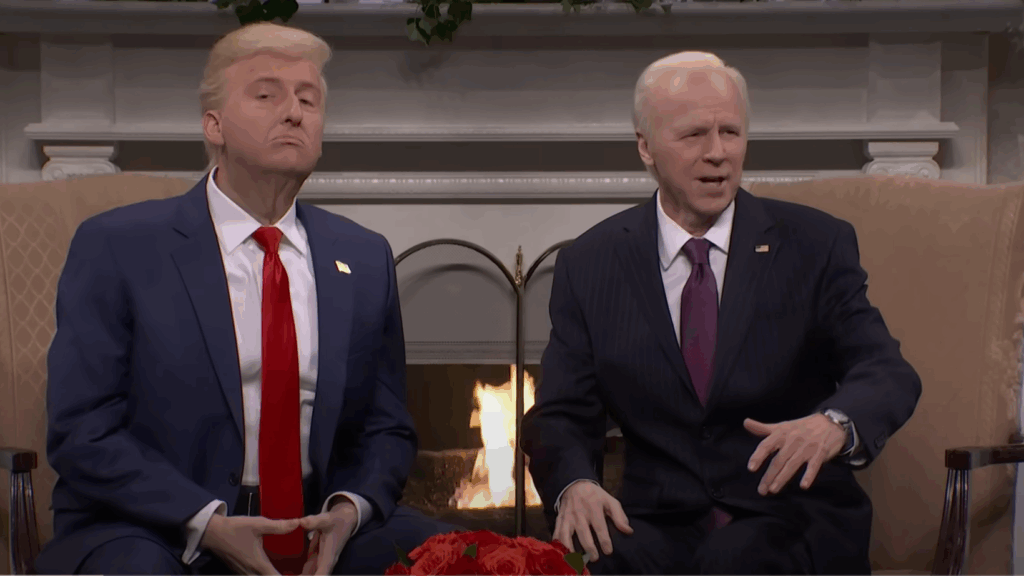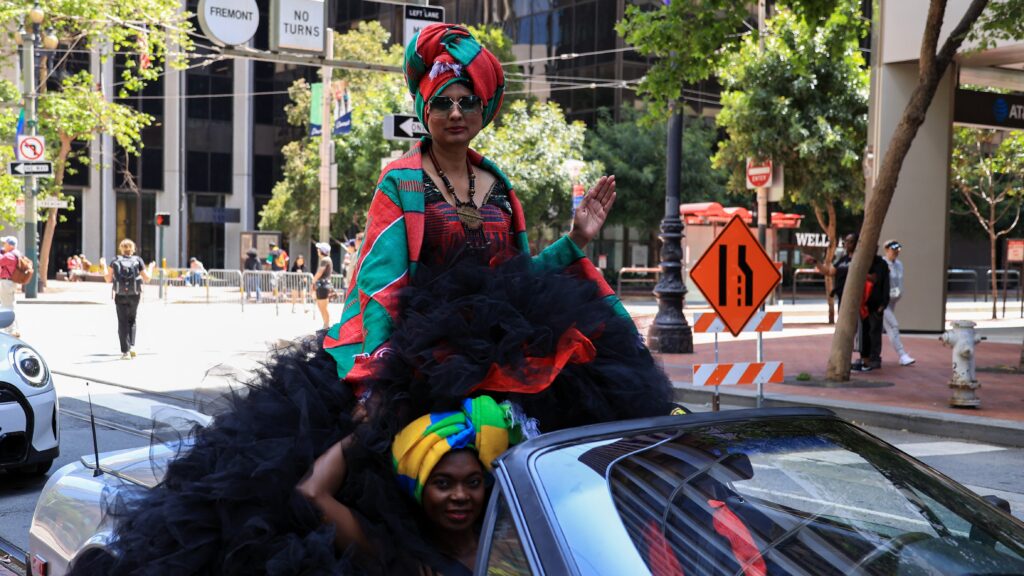US President Joe Biden said last week during a wide-ranging campaign speech in California vowed to liberate Iranians from their draconian regime. Indications were that the two-month-long demonstrations to oust the government of the Islamic Republic of Iran regime may soon succeed:
‘Don’t worry, we’re going to free Iran.’ They’re going to free themselves pretty soon.’
The following day, John Kirby, the communications coordinator at the National Security Council said:
‘The president’s been pretty clear about this … we’re going to continue to look for ways to hold the regime accountable for the way that they’re treating their own people.’
Iranians took to the streets after twenty-two-year-old Mahsa Amini, also known as Jina Amini or Zhina Amini, died in a Tehran hospital after she was arrested and physically beaten by religious morality police for not wearing the hijab. Women appeared in the streets, burning their hijabs, and calling for justice. The ongoing protests are not just against the mistreatment of women but for the freedom of speech and and of religion. The end goal is to have a change of government.
Amongst the Iranian protesters that are trying to overthrow the Islamic government is a group that calls itself Tehran Youths. Last week it asked citizens to surge to streets Sunday afternoon in memory of Nima Nouri, a teenager from Karaj, who was killed by the direct fire of regime forces and the innocent people who were killed by ‘[Supreme Leader Ayatollah] Khamenei’s shameless executioners’ in the south-eastern city of Khash on 4 November. Thus far, from what we know, the death toll from the Islamic Republic’s crackdown on protests has increased to 304, including 41 children and 24 women.
If the Biden administration is going to seriously engage in an operation to ‘liberate’ Iranians, it has to concentrate its efforts on providing more support to the protesters, not just in words but with action. Yet it is not just women and pro-democracy activists the mullahs are oppressing. The Christian minority is also having its human rights violated.
Christian Persecution
Despite the Ayatollah’s claim that religious freedom is protected in Iran, government persecution against Christians is getting worse, following a recent wave of arrests and convictions that far exceeds what happened in the past.
As reported by Asia News in September, approximately twenty-five Iranians have been convicted this year for converting to Christianity, compared to fifteen for the whole of last year. In the same manner, fifty-eight have been arrested in the first half of 2022, compared to seventy-two for the whole of 2021. Iranian authorities use spurious charges to silence religious minorities and arrest them on national security and espionage charges. Some have even had their assets confiscated. Muslim converts and Farsi speakers are targeted since they are not allowed to join another religion.
As a result, the Christian minorities in Iran are unable to live in peace and their plight continues. For example, in May 2021, three Christian converts, Amin Khaki, Milad Goodarzi and Alireza Nourmohammadi were formally accused of spreading propaganda and educational activities contrary to sharia law. Christian convert Reza Zaimi, in February of last year, was sentenced to a year and six months in prison and prohibited him from leaving the country by the Revolutionary Court of Karaj on charges of ‘propaganda against the regime through the proselytising of evangelical Christianity.’ The sentence was reduced by the Alborz Court of Appeal to nine months in prison and a two-year ban on leaving the country.
As testified by Saghar, a Christian evangelist convert, house churches are regularly raided, and dozens of Christians end up in prison each year. During interrogations, newly baptised Christians are forced by security officers to renounce their faith, which includes their baptismal names. And the regime stops at nothing to exercise its Islamism.
This past May, I baptised a young Iranian in Florence. After he officially become a Catholic, according to his godmother, his brother who still lives in Iran received a taunting threat from the religious police saying: ‘We know your brother is becoming a Christian this morning.’ Apparently, the regime’s operatives intercepted the young man’s communication with his brother and discovered he chose to leave Islam for the Christian faith. Yet there is one person who could literally help turn the tide around in favour of the Iranians who are seeking a better life, and that is Pope Francis.
Vatican Opposition?
On his return flight from a four-day visit to the Persian Gulf on 6 November, the Pope was asked to comment on the situation in Iran. To the disappointment of many Iranians—a number of them personally told me of this—Francis did not weigh-in specifically on the Iranian situation, in particular the violent and deadly crackdowns against its citizens. Instead, he said: ‘I ask myself, why does a woman have to fight for her rights?’
This should be of no surprise considering his favourable disposition to Iran. This January, for example, he invited the director of the Iranian seminary schools’ affairs, Ali-Reza Aarafi, and other mullahs, to the Vatican. He praised Tehran’s ‘bravery’ in global issues. Aarafi quoted Francis as saying that the Pope respected Iranians for three different reasons. First, because the Pope has a profound knowledge about Persian history and finds it praiseworthy. Second, because Iran is still the only country with a religious political system; third, Iranians have demonstrated bravery in international issues. These remarks were apparently not contested by the Vatican.

The Regime Will Not Adapt
The regime’s despotism is not only manifested within Iran, but in other Middle East countries as well. As we noted in a previous article, Iran currently sponsors at least forty militia groups in neighbouring Iraq. Some of these groups are known for committing war crimes, serious violations of international laws, and egregious crimes against humanity. To say nothing of the parallel states it has created in Lebanon, Syria, and Yemen.
After having visited Iraq in April, I can personally testify that in militia-run villages where Christians live, they are continually discriminated against. The militias, with the assistance of the Badr Organisation—a Shi’ite political party and paramilitary force that acts as Iran’s oldest proxy in Iraq—occupy government posts imposing their sharia tenets, while simultaneously receiving government funding for houses and employment at the cost of their Christian neighbours. To think the regime seeks the best interest of its people and others is disingenuous at best.
In fact, all the West, including the Vatican, and Arab countries have to do to objectively assess the situation is look at how the mullahs are providing the Russians in their war against Ukraine with Shahed-136 drones and short-range ballistic missiles to target civilian infrastructure.
Future Strategy
Naturally, the President’s aforementioned words are not to be taken literally, in the sense that he is going to send US troops to Iran to overthrow the Ayatollah as President George W. Bush did with Iraqi dictator Saddam Hussein in 2003.
It is highly improbable that the White House would pull the same strings it did when the CIA deposed Iranian Prime Minister Muhammad Mosaddeq from power in 1953 or Shah Mohammad Pahlavi in 1979, although anything is always possible. However, Khamenei’s brutal crackdown is helping to undo the damage wrought by the international consensus on not acting against the theocratic state.
As Bloomberg columnist Bobby Ghosh says:
‘European leaders, who were displeased by Trump’s unilateral withdrawal from the 2015 nuclear deal with Iran and dismayed by his bellicose rhetoric, are getting a useful reminder that the real bad guy in this picture lives in central Tehran, not Mar-a-Lago.’
The US cannot do it alone, just as Europe cannot take on Russian President Vladimir Putin’s aggression if it is not united. Yet if the West and the Vatican came together and publicly condemned the Islamic Republic of Iran for its crimes, it would not just be in the interest of Iranian citizens but the entire Middle East region. And the time to act is now.








